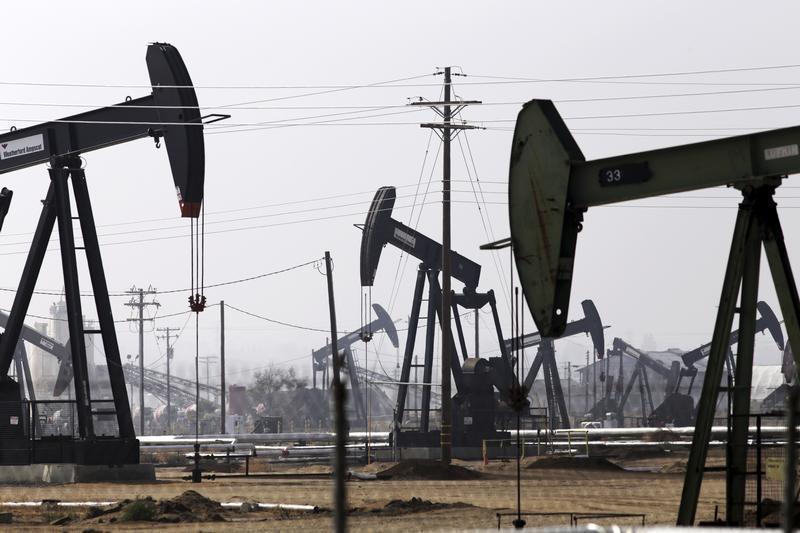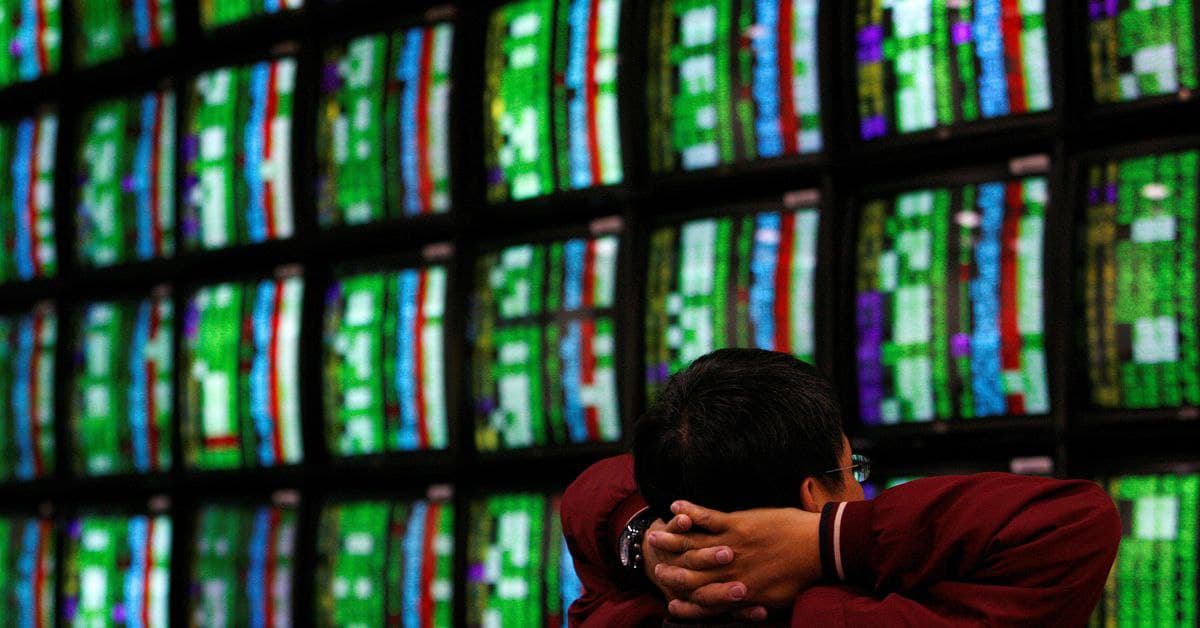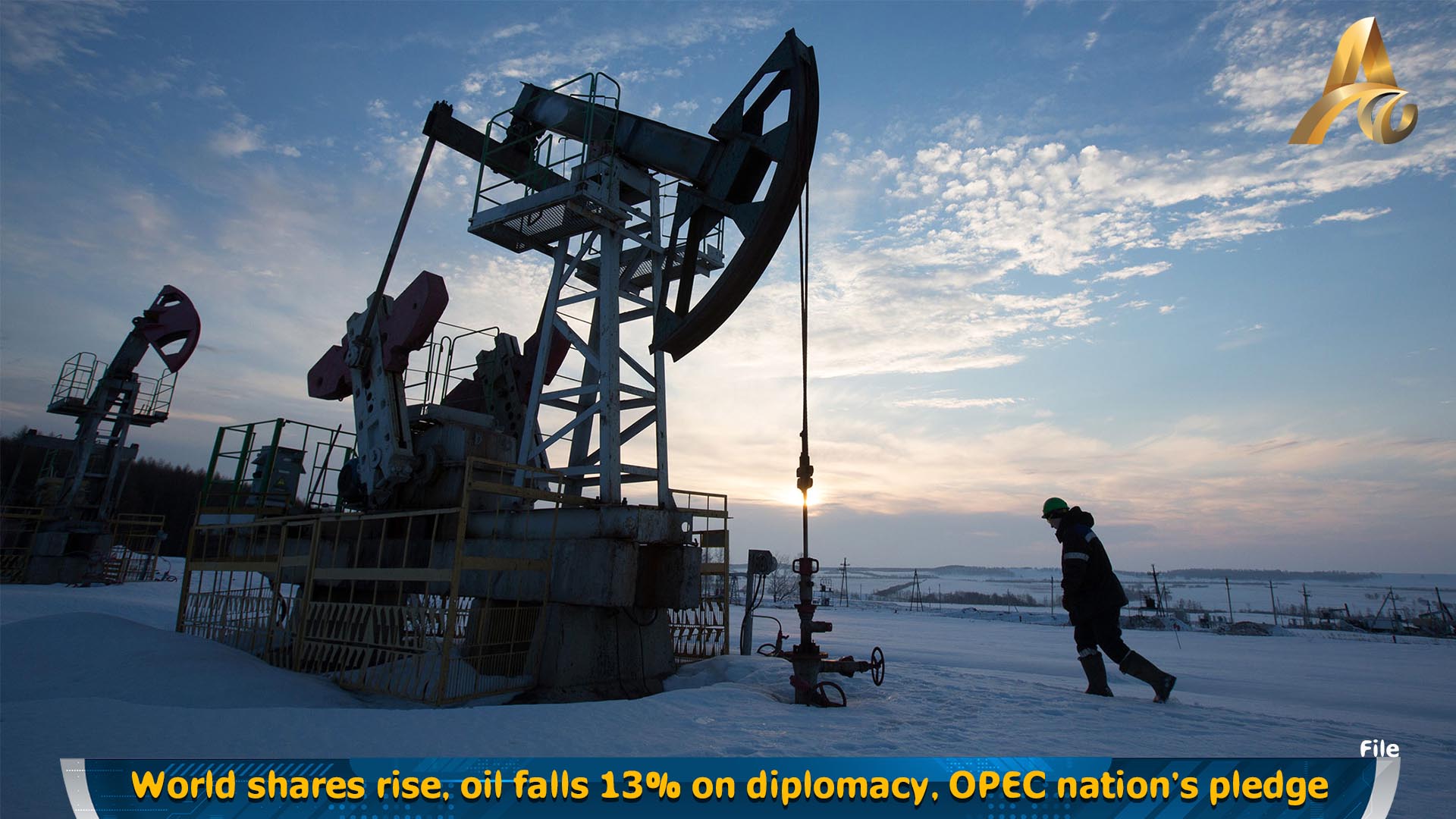INTERNATIONAL: Global stock markets rallied on Wednesday and oil prices fell by more than 12% as Ukraine and Russia looked to resume diplomatic talks and the United Arab Emirates said it supports hiking oil output to ease mayhem in energy markets.
Russia's foreign minister Sergei Lavrov arrived in Turkey ahead of planned talks on Thursday with his Ukrainian counterpart Dmytro Kuleba for what will be the first meeting between the two since Russia invaded Ukraine two weeks ago.
Moscow warned it was considering a response to the U.S. ban on Russian oil and energy imports, saying the U.S. has declared economic war on Russia.
Global oil prices fell by the most in nearly two years after the UAE said it will be encouraging the Organization of the Petroleum Exporting Countries (OPEC) to consider higher output.
The MSCI world equity index (MIWD00000PUS), which tracks shares in 50 countries, was up 2.6% by 5:12 p.m. EST.
The Dow Jones Industrial Average (.DJI) rose 653.61 points or 2%, the S&P 500 (.SPX) gained 107.18 points, or 2.57% and the Nasdaq Composite (.IXIC) added 460.00 points or 3.59%.
The pan-European STOXX 600 gained 4.68% (.STOXX).
Brent crude futures settled down $16.84, or 13.2%, at $111.14 a barrel, their biggest one-day decline since April 21, 2020. U.S. crude futures ended down $15.44, or 12.5%, at $108.70, their biggest daily decline since November.
Analysts said the rally in equities was in line with historic data that shows the impact of geopolitical events tends to wane quickly on markets.
"Most conflicts have not had a lasting impact on equity markets. Share prices tend to rise after a period and even become less volatile," said Melissa Brown, managing director of applied research at Qontigo.
If the talks between Ukraine and Russia lead to a de-escalation of the war, investors will refocus their attention on "the prices of oil and other commodities, and whether central banks will have to change course."
The European Central Bank meets on Thursday. Economists expect that fears of stagflation - when prices soar and growth slows - will lead the ECB to delay hiking interest rates until later this year.
The Russian invasion and ensuing sanctions are exacerbating supply chain problems created by the pandemic and have caused commodities prices to soar.
In Europe, German carmakers Porsche, Volkswagen, and BMW have all curtailed output because of a lack of supplies.
After trading above $2,000 earlier in the week, spot gold fell 3% to $1991.49.
Palladium, used by carmakers, fell 7.5% to $2,940.72 per ounce after hitting a record high of $3,440.76 on Monday.
Nickel is not expected to resume trading until Friday after the London Metal Exchange halted trading on Tuesday when prices rocketed to over $100,000 a ton.
But it is elevated oil prices that could cause further slowing in global economic growth, said a World Bank official who estimated Russia's invasion could cut a full percentage point off economies such as China, Indonesia, South Africa, and Turkey.
The dollar index fell 1.159%, with the euro down 0.03% to $1.1072.
The yield on 10-year Treasury notes was up 7.3 basis points at 1.944% after touching 1.95%, its highest level since Feb. 25. The three-day streak of gains in the yield is the longest in a month.
Elsewhere, bitcoin rose 9.1% to $42,280, on track for its largest percentage gain since Feb. 28, after U.S. President Joe Biden signed an executive order requiring government agencies to assess the benefits and risks of creating a central bank digital dollar.
























